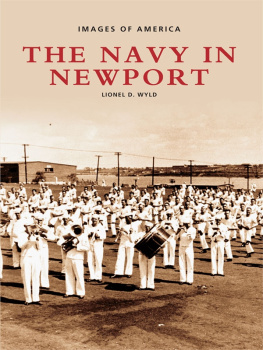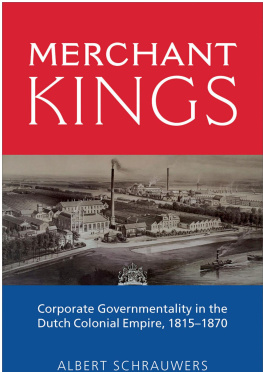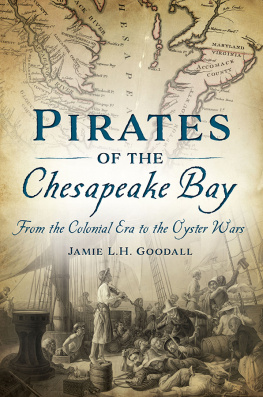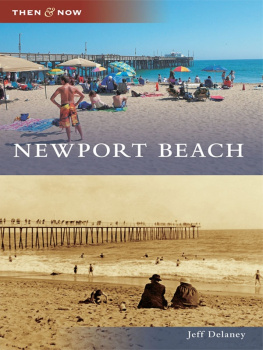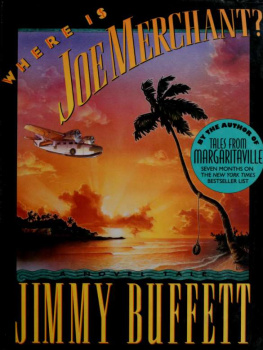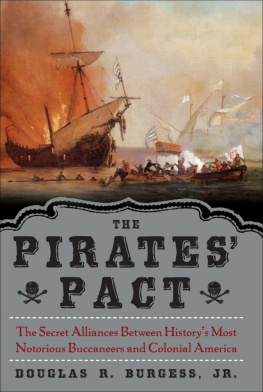

Published by The History Press
Charleston, SC 29403
www.historypress.net
Copyright 2014 by Gloria Merchant
All rights reserved
First published 2014
e-book edition 2014
ISBN 978.1.62584.728.7
Library of Congress Cataloging-in-Publication Data
Merchant, Gloria.
Pirates of colonial Newport / Gloria Merchant.
pages cm
Includes bibliographical references and index.
print edition ISBN 978-1-62619-250-8
1. Pirates--Rhode Island--Newport--History. 2. Pirates--Rhode Island--Newport--Biography. 3. Newport (R.I.)--History--Colonial period, ca. 1600-1775. I. Title.
F82.M47 2014
974.5701--dc23
2014014394
Notice: The information in this book is true and complete to the best of our knowledge. It is offered without guarantee on the part of the author or The History Press. The author and The History Press disclaim all liability in connection with the use of this book.
All rights reserved. No part of this book may be reproduced or transmitted in any form whatsoever without prior written permission from the publisher except in the case of brief quotations embodied in critical articles and reviews.
To Jack
Contents
Acknowledgments
Sincere thanks to my History Press team: Jeff Saraceno for your enthusiastic launch, Katie Orlando for casting me off and Krista Slavicek for helping me to navigate.
Thank you Redwood Library for your outstanding staff, incomparable collection and exceptional historical images. Id particularly like to thank Whitney Pape, Special Collections librarian and Robert Kelly, Collections librarian.
I owe additional thanks to Tara Ecenarro of the Newport Art Museum for your help beyond the call of duty.
Thank you to the Newport Historical Society for your unique and comprehensive research library and photo archives. I extend additional gratitude to Jennifer Robinson for your tireless help locating images and to Bert Lippincott for your encyclopedic knowledge of Newports history and boundless enthusiasm for sharing the same.
Thanks also to the Newport Public Library for your Newport Room and relentless reference librarians.
Thank you to Salve Regina University for providing access to Americas historical newspapers.
Id like to thank my friends at the Providence Art Club for your help in a crunch.
A special thanks to Ginny Saunders and Frances and Alfred Lopes for insights into Conanicuts history that only locals can provide. Thanks also to Sue Maden and Rosemary Enright of the Jamestown Historical Society.
Thank you to Rhode Island Historical Society for your knowledge, collection and super staff.
Thanks to Pamela Gasner at the Block Island Historical Society for your informative tour of the island.
Thank you to Susan Anderson, Roz Kopit, Adriane Scola-Jones, Alision Quinlan and Helene Scola. Your insightful comments helped me keep the story of Newports pirates on course.
Additional thanks to Helene Scola for your friendship, support and wicked good photos.
A special thanks to James Hattendorf for generously sharing your knowledge of Trinity Church and admiralty courts.
I want to thank Tim Cranston, North Kingstown town historian and worthy descendant of the Govnah, for your time, knowledge and unique perspective.
Thanks also to my friend and Newport neighbor Maggie Cousineau-Arndt for loaning me your rare book about Newports Point.
Thank you to Roswell for allowing your photograph to be included.
Thank you to Terri Davis-Merchant and Steven Munger for sharing your linguistic skills.
Boundless thanks to my husband, Jack, for technical support and manuscript critique. I also have to thank you for your (mostly) cheerful willingness to share my attention with rogues, scoundrels, wicked and ill-disposed persons.
Introduction
Red Sea pirates sailed out of Newport Harbor, attacked Muslim ships, returned to Newport, sold plunder and spent foreign gold. Privateers who dabbled in piracy, pirates who pretended to be privateers and outright pirates all weighed anchor in Newport Harbor. Liars, thieves, murderers and rapists drank at local taverns. Who were those men? What drove them to piracy? Why did Newports citizens welcome them? Why did those same citizens turn against them?
Newports piratical past and the answers to those questions lay buried like treasure. Hints exist in place names like Pirates Cove and Pirates Cave. Stories of Kidds buried treasure persist. Municipal workers dug up gold, silver and jewels while laying water pipes in nearby Jamestown. In the mid-twentieth century, an ancient chest appeared and then disappeared under Newports cliffs. Ghost stories about executed pirates haunting their watery graves make for excellent telling.
In order to unearth the history behind the legends, I plundered colonial records, depositions, newspaper accounts, correspondence and reports by royal officials. I learned about commerce, Englands endless wars and greed and corruption on both sides of the Atlantic. The treasure I unearthed revealed the turbulent reality of life in colonial Newport.
Many of Newports fathers, husbands, sons and brothers sailed under the black flag, but Newports pirates did not always fit the swashbuckling stereotype. They often returned home, bought property, started businesses, held public office, married, raised families, attended church and died peacefully in their beds.
Map of Rhode Island detail by John Reid, 1796. Newport is located in Rhode Island. Courtesy of the Redwood Library & Athenaeum, Newport, Rhode Island.
The first pirates to sail out of Newport carried privateering commissions during Englands war against the Dutch in 1652. New Netherland justifiably condemned them.
From the mid-seventeenth to the mid-eighteenth centuries, Parliament passed a series of Navigation Acts designed to make English colonies dependant on London for European goods and keep the balance of trade in Englands favor. A combination of smuggling and piracy leveled the playing field.
By 1698, representatives to the king accused Rhode Islands government, whose capital was Newport, of conniving with smugglers and favoring pirates. They were right. A business partnership existed between Newports pirates, merchants and colonial government. Local mariners plundered Red Sea shipping, brought luxury goods home and sold them to Newport merchants and private citizens at bargain prices. The government provided the outlaws safe haven for a fee. Pirates liberally spent foreign gold and silver currency in the cash-starved colony. Newporters welcomed them.
Newports relationship with pirates and its attitude toward them changed in the early eighteenth century. When Queen Annes War ended, in 1714, many unemployed English and Anglo-American sailors and privateers became pirates. They spent the winter freebooting in the Caribbean and passed the summer plundering along the Atlantic coast. Colonial shipping suffered heavy losses and barbaric treatment at their hands. Newport wanted no part of them.
Once Newports growing and prosperous shipping fleet was on the receiving end of piracy, it was pleased to cooperate with Londons pursuit of pirates, but a different form of robbery threatened Newports economy. Taxation without representation stole profits, and Englands enforcement ships stole property.





